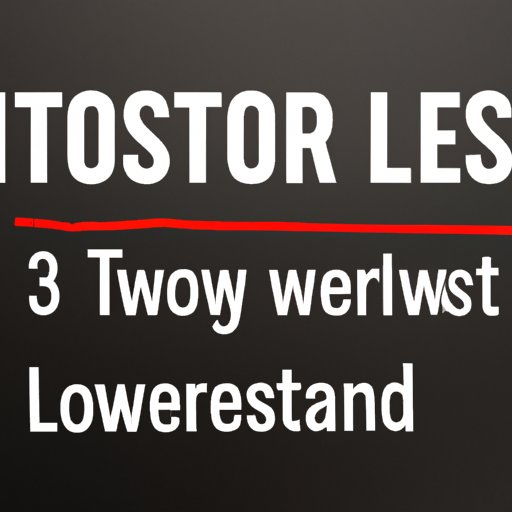
How to Know if You Have Low Testosterone: Symptoms, Diagnosis, and Treatment Options
As men age, testosterone levels naturally decline. However, some men may experience abnormally low levels of testosterone, which can have a significant impact on their overall health and well-being. In this article, we will explore the various symptoms of low testosterone, as well as the available medical tests, medical conditions, lifestyle changes, and therapy options for managing this condition.
Symptoms Checklist
Low testosterone can cause a wide range of symptoms, including decreased sex drive, erectile dysfunction, decreased muscle mass, fatigue, hair loss, and mood changes. Other symptoms may include decreased bone mass, increased body fat, and breast development (gynecomastia).
It is important to note that some of these symptoms may be more common in men of certain ages. For example, older men may experience muscle weakness and decreased bone density, while younger men may experience delayed puberty or reduced fertility.
Medical Tests
If you suspect that you have low testosterone, your healthcare provider may recommend a blood test. This test measures the amount of testosterone in your blood and can help diagnose low testosterone. However, it is important to note that testosterone levels can vary throughout the day, so multiple tests may be necessary to confirm a diagnosis.
Another test that may be used is a pituitary gland MRI, which can help identify any potential issues with the pituitary gland that may be responsible for low testosterone. In some cases, a semen analysis or bone density test may also be recommended.
It is important to note that while these tests can be helpful in diagnosing low testosterone, they are not foolproof. Testosterone levels can fluctuate depending on a variety of factors, such as stress, illness, and certain medications.
Medical Conditions that Cause Low Testosterone
There are several medical conditions that can cause low testosterone, including hypogonadism, Klinefelter syndrome, and injuries to the testicles. Hypogonadism is a condition where the testicles do not produce enough testosterone, while Klinefelter syndrome is a genetic condition that results in the presence of an extra X chromosome, leading to reduced testosterone production.
Injuries to the testicles, such as those that occur during sports or accidents, can also result in decreased testosterone production. In addition, certain medical treatments such as chemotherapy and radiation therapy can also cause low testosterone.
Age-Related Low Testosterone
As men age, testosterone levels naturally decline. In fact, testosterone levels start to decline in most men after the age of 30 at a rate of about 1% per year. This can lead to a wide range of symptoms, including decreased muscle mass, decreased bone density, erectile dysfunction, and reduced sex drive.
While age-related low testosterone is common, it is important to remember that not all men experience these symptoms to the same degree. In addition, other lifestyle factors, such as diet and exercise, can play a role in testosterone levels.
Lifestyle Changes to Boost Testosterone
There are several lifestyle changes that can help boost testosterone levels. Exercise is one of the most effective ways to increase testosterone, particularly strength training exercises. Adequate sleep, a healthy diet rich in protein and vitamins, and maintaining a healthy weight can also help boost testosterone levels.
Reducing stress and limiting alcohol and tobacco use can also have a positive impact on testosterone levels. However, it is important to note that while lifestyle changes can be helpful in improving testosterone levels, they may not be effective in all cases of low testosterone.
Supplements and Therapy Options
There are several supplements that may be recommended to men with low testosterone, such as DHEA and zinc. These supplements can help boost testosterone levels, but they should be used under the guidance of a healthcare provider.
Hormone replacement therapy is another option for men with low testosterone. This therapy involves using synthetic testosterone to replace the testosterone that the body is not producing. While this therapy can be effective, it is important to note that it carries some potential risks, such as an increased risk of heart disease and prostate cancer.
Importance of Seeking Medical Advice
If you suspect that you have low testosterone, it is important to speak with a healthcare provider. They can help diagnose the condition and develop an appropriate treatment plan. In addition, it is important to remember that low testosterone can have a significant impact on overall health, including bone density, muscle mass, and sexual function.
Conclusion
Low testosterone is a common condition that can have a significant impact on men’s health and well-being. Symptoms can range from decreased sex drive to decreased bone density and muscle mass. While testosterone levels naturally decline with age, some men may experience abnormally low levels of testosterone due to medical conditions or other factors. It is important to speak with a healthcare provider if you suspect that you have low testosterone, as they can help diagnose the condition and develop an appropriate treatment plan.




